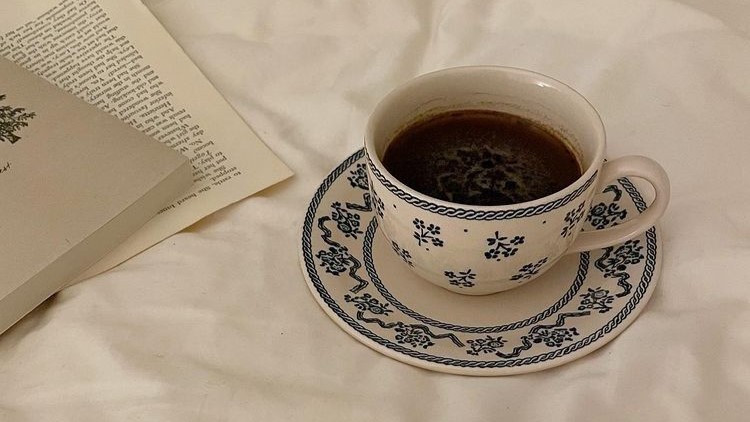My Favorite Books of 2022 (and least favorite)
I read 28 books this year! (Estimated reading time: 4 mins)

I read 28 books this year! It was one of my goals to always have a book on-the-go, no matter how long it took me to finish it, and I’m happy to say I accomplished this. As I mentioned in a previous blog post, this year I tried to read books that I thought could teach me something, whether that be about the world or about writing. Here are my top 5!
5. West Wind by Mary Oliver
This was my first introduction to Mary Oliver, and now she is one of my favorite poets. It can be difficult for me to read poetry collections – without a plot to carry me through, it can be hard to stay focused. However, poetry has played an important role in my life and introduction to writing. Although I don’t write much poetry these days, I like to think it still influences my approach to word choice and figurative language.
Oliver’s poetry is clever and accessible without sacrificing complexity. I found myself constantly surprised by her choices and touched by her ability to put words to emotions I’d never considered naming. I could list my favorite poems from the collection, but that would just be the table of contents.
4. The Anthropocene Reviewed by John Green
In middle and high school, I was a big John Green fan (yes, I was one of those people bringing tissue boxes to the Fault in Our Stars premiere), and recently I’ve revisited his content. Here, each essay examines a seemingly inconsequential aspect of modern life, from Diet Dr. Pepper to front lawns, and explores the history, impact, and Green’s personal connection to the subject.
I have a lot of respect for Green and this book. I thought it was a beautiful snapshot of the human experience. Despite references to depression, pain, and the pandemic, every essay ultimately had hope at its center. It made me happy to be alive.
3. The Nobleman’s Guide to Scandal and Shipwrecks by Mackenzi Lee
This is the final book in the Montague Siblings trilogy. It’s very fun! It strikes a perfect balance between humor and serious topics like mental health and abuse. I especially admire how Mackenzi breathes life into history – it’s so easy to imagine people from the past as empty names from a textbook, but all the Montague siblings feel deeply relatable in different ways.
I also had the opportunity to meet Mackenzi this year! She is a wonderful person!
2. Autobiography of Malcolm X by Malcolm X and Alex Haley
This book taught me so much. I was surprised by how readable it is – it’s written in a first-person narrative that is captivating and easy to follow. Prior to this year, I knew very little about Malcolm X – basically only whatever sparse paragraph was dedicated to him in my grade school history textbooks, a paragraph not without bias; he was typically presented as Martin Luther King Jr.’s more violent counterpart.
Obviously, the truth is far more complex. Not only did I learn about Malcolm X’s life and contributions to the civil rights movement, but I also learned about the experiences of black people in Harlem, systemic racism through the 20th century, and the Nation of Islam. The book was written as many of the events within were still taking place, and therefore shows how Malcolm X’s opinions changed throughout his life in response to new information. According to the Haley’s note, Malcolm X wanted to go back and revise chapters based on his changed perspectives, but Haley convinced him not to. This made it a very dynamic and authentic read.
The ending was especially striking. Malcolm X predicted his life would be cut short, and he said that once he was gone, history (as written by white people) would use him as a symbol of hatred in order to “escape facing the truth that all I have been doing is holding up a mirror…” My grade school textbooks were proof enough that this is true.
1. Frankenstein by Mary Shelley
My roommates and I started a book club this year, and Frankenstein was our first read! I loved it. Reading with them reminded me so much of analyzing books back in high school English classes. Prior to this year, my only experience with Frankenstein was through popular culture, most of which harkens back to the 1931 film.
Turns out the book is totally different! Not only was I continuously surprised by the plot and characters (the Creature is not mute…in fact he does whole monologues in French…and his favorite book is Milton’s Paradise Lost…) and the themes were far more complex than I expected. People love to say, “Frankenstein is the doctor not the monster.” People who think they are a little bit smarter love to say, “Actually, Frankenstein is the monster, in the moral sense.” Well, I think I’m very smart, and I say that Victor is a feverish 20-year-old college dropout who did NOT earn his M.D., and the ethics are quite a bit more complicated than that.
And now, because I am a hater, my least favorite book of 2022:
The Atlas Six by Olivie Blake
Sorry…I know TikTok loves this one…I thought the premise and atmosphere were charming (a group of six elite, magic-wielding scholars tasked to protect the Library of Alexandria), but the characters were unbearable and the plot meandering. Earlier this year, my creative writing professor assigned an editing exercise – we started with a 500-word story and had to cut it down to 50 words. Give me The Atlas Six and a red pen and I would go crazy. I respect the self-publishing grind, but this book would have greatly benefitted from an editor (and would probably be 100 pages lighter).